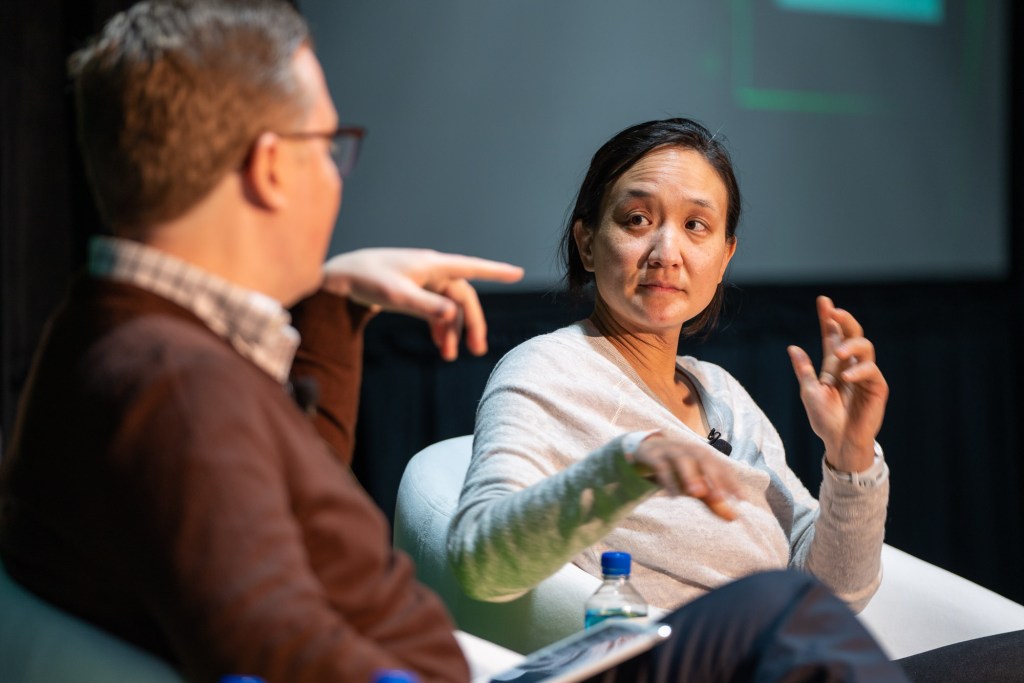In her presentation at last week’s TechCrunch Early Stage event in Boston, SOSV general partner Pae Wu tossed out the tongue-in-cheek phrase “recovering academic” to describe founders in the firm’s IndieBio program.
It’s a fitting label, given many founders in the program are academics, and their journey from academia to accelerator has its share of growing pains as they often have to adapt to the business world without a business degree.
While many such early-stage startups look outside of their founding team to add to their C-suite, Wu explains that the best approach is often simply developing skills within the existing core.
“Being in the C-suite is like getting married,” says Wu. “These are pretty long and committed relationships and you have to be able to know how to work together, get along and have an unbelievable amount of trust with the people you’re working with. I think it’s important for founders to lead that charge.”
What, then, does a founding team do for a recovering academic? After all, giving it all up to launch a startup is the biggest risk many founders will take in their lives. It’s scary, regardless of how confident you might be in your core technology — a dramatic departure from the relative safety of an academic role. One can certainly appreciate why such founders sometimes attempt to keep a foot in each world. “This is a very … difficult problem,” Wu says.
In many cases, professors who work with students on spinning out a breakthrough tech opt to remain at their university, only adopting a C-level title. It’s something that can, and has, been pulled off successfully, but it’s not without its challenges.
“There are some sectors where it can work very well to have members of your founding team who remain in academia,” Wu adds. “We see this all the time in traditional biotech and pharma. But in other types of situations, it can become, frankly, a drag on the company and problematic for the founders who are full time. This is a very tough conversation that we have quite frequently with some of our committed academics: Your stake in this company isn’t really aligned with your time commitment.”
The biggest issue in such a scenario springs up when the founder removes themselves from the day-to-day to remain full time in an academic setting. Often, in a bid to be helpful, they may make suggestions that aren’t aligned with the company’s core mission. That’s not helpful at a time when focus is vital for survival.
“Academics really love to say, ‘Well, I’m actually really good at multitasking, and therefore I can do this,’” Wu explains. “The majority of the time, the academic founder will come in and out and provide their sage wisdom to the full-time founders who have committed their lives and risked everything for this company. It starts to create challenges in getting the company to move forward. It creates interpersonal challenges as well for the founding team, because you have to be a special kind of saint to say, ‘I’m working 100 hours a week, I don’t make any money, and my whole financial future rests on the success of this company. And this guy keeps coming in to tell me some random thing that he read on the Harvard Business Review.’”
In recent years, universities have increasingly tried to help incubate and accelerate startups using breakthroughs made within their walls. This has traditionally been a major bugbear among backers who believe that these institutions have both an ethical and financial obligation to help students commercialize technologies. It’s seen as a positive by many in the community, but Wu cautions against potential fallouts.
“If you want to be a VC-backed startup, beware the helpful university stuff,” says Wu. “It might feel very, very comfortable. They do a great job of incubating companies, but I don’t know that they do a great job of accelerating companies. You get a lot of ‘free stuff,’ and [people often say] ‘Oh, this is a convenient EIR (education, innovation and research) program to work with, and this guy started 15 companies before.’ But this guy started 15 companies in sectors that have absolutely nothing to do with what you’re trying to do. You would absolutely be better off finding somebody who actually cares about your mission, isn’t paid by the university, but is incentivized to care deeply about your company.”
The other outstanding question in all of this is IP. Specifically, how can startups and their investors untangle questions around ownership of technologies created in a university lab?
“It doesn’t have to be complicated,” says Wu. “We are actually working on some models of how to do that more directly with the universities […] I feel strongly that your best bet is that, when you’re ready to go full time, just do it. Cut the cord. Stop being paid by the university and truly become an employee of your own business because your mindset will completely change.”































Comment